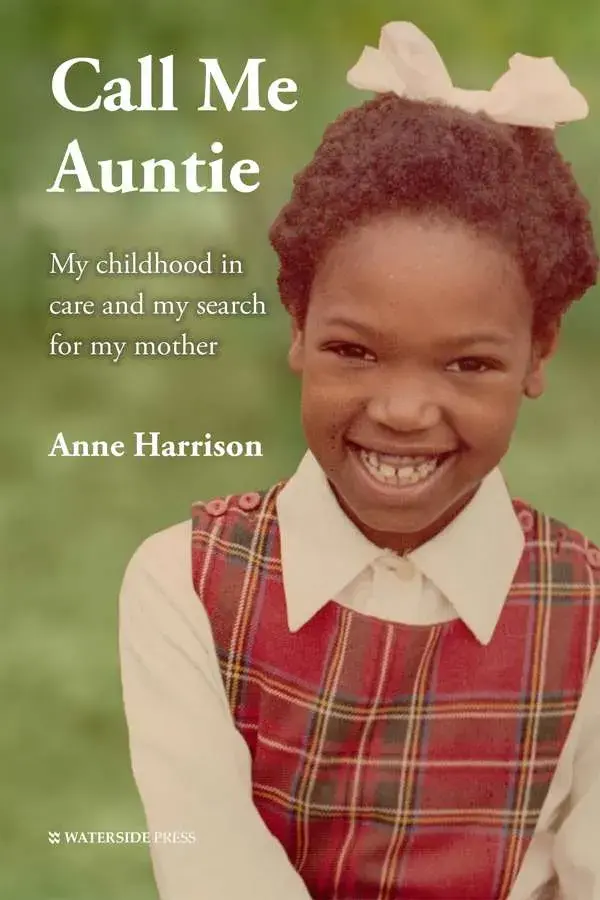Meet the Author: Anne Harrison
- Jacci Gooding
- Sep 10, 2024
- 4 min read
Updated: Dec 5, 2024
This year’s festival sees a mix of many subjects from local authors, not least from first time author Anne Harrison, whose book Call Me Auntie is an emotional journey outlining her quest to find her birth mother. Anne describes her childhood in the care system, unexpectedly finding a sibling and finally finding her mum. Here she gives us an interview telling us about her book and how it all began.
Hello Anne, and thank you for taking part in this interview. To start, please tell us a little bit about yourself.
I am married with one son and two stepsons. I was brought up in the care system after my mother abandoned me as a baby. I worked as a shop assistant, police officer, and social worker eventually becoming a social care manager. I am now happily retired.
You have had a varied and interesting working life - what drew you to wanting to write a non-fiction book?
I’ve always had stories to tell about my childhood in care, but I always knew there were gaps that I couldn’t fill, and no one could help me. It wasn’t until my fifties, when my care file, thought lost, turned up, that I could at last check my memories and fill the gaps. It turned out that I had a story to tell.
Wow, that must have been a surprise. Did you find it easy or difficult to actually start writing?
I’m not a natural writer, so it was difficult. I didn’t know how to organize myself as a writer or where to start. The advice I got was to start anywhere, write things in a notebook as they occurred to me, and even record myself talking.

Your book, Call Me Auntie, is very emotive. How did you cope writing about those emotions?
I allowed myself to write when I wanted and not write when I didn’t feel comfortable. It was important that I found writing exciting. It was a new skill. I was interested to be able to write about myself, where in my professional life I was always writing about others.
What was your path to publication?
Initially I wrote for family and friends, not for publication. They encouraged me to raise my sights. A friend recommended a small publisher with an interest in social and legal issues. I sent a proposal, then a sample chapter, and got an almost instant response.
Would you consider writing fiction?
I’d love to and in some ways I would prefer to, but I don’t know how.
Describe your writing process for us
As mentioned above, I began by starting at random points in my story, writing things in a notebook as they occurred to me, and even recording myself talking about my life. The difficult thing was getting it in order..
Yes, that is often the case! Would you say it was easy writing a book?
No, and I didn’t expect it would be as I was out of my comfort zone.
What would you say were the stumbling blocks?
Getting organised, knowing when to start and stop writing, and not making excuses for failing to get on with it.
What is the best time of day for you to write? The afternoon.
Now that you are a writer, what do you think is the best part of being a writer? The enjoyment of finding that I had a story in me, the sense of achievement when I was done, and the interest that other people have shown.
What's the most surprising thing you learned while writing your book?
That my memory was not as bad as I thought it was!

That’s encouraging! Now Call Me Auntie is out in the world, do you intend to write another book?
I’d like to. The next part of my story was my experiences working in social care, which were often more intriguing and outlandish than most would expect.
Did you edit your own work as you went along?
No. The advice I had was to move along and not look back.
What advice would you give a first-time non-fiction author?
Don’t start at the beginning. Be kind to yourself.
What book are you currently reading?
The People on Platform 5 by Clare Pooley and (on audio) The Word is Murder by Anthony Horowitz
How do you view your readership?
They’re extremely varied, from social workers and educators to my own friends and childhood carers, men as well as women, and those who have had a similar experience to mine. Some of my readers who thought they knew me were very surprised by my story. Others who had had similar experiences were surprised to learn they were not alone.
And how important would you say book reviews are?
I acknowledge that book reviews are important but for me word of mouth has been more important
Is social media important to you with regard to how you feel about your success?
Yes, because my book came out in the first year of the COVID pandemic and social media provided the only way I could launch my book. Social media provided me with connections to people who went on to invite me to present my book to interested groups, at first online, and later at many face-to-face meetings. Social media put me in touch with many people at home and abroad, including friends and colleagues whom I had not seen in over 40 years.
Thank you for talking with us Anne and all the best with your book!
Interview by Jacci Gooding



